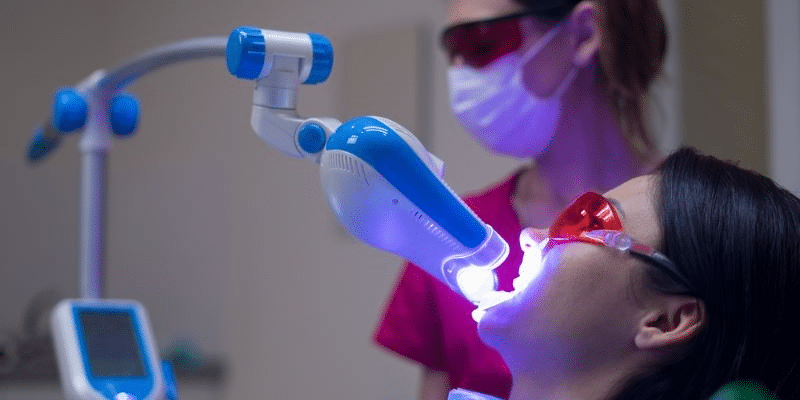When Do Health Insurance Companies Pay for Dental Treatment Abroad?
Getting dental work abroad is a great alternative for those who are faced with a potentially costly restoration of their teeth, which German statutory health insurances do not fully cover. Since the costs of such treatment quickly run into the tens of thousands, dental work without insurance is simply impossible for most. And even when health insurance companies only pay 60-70% of the amount of the cheapest possible version of the treatment, a large amount is still left to the patient, so if there is no supplementary insurance to cover the rest, the quality of the materials is downgraded or patients just look for cheaper alternatives abroad. Of course, some people may be skeptical about going abroad for treatment. In order to consider this step, it is essential to have a clear idea of the costs and the travel process.
So, how does dental insurance work in Germany? Here, we outline the criteria required for your health insurance company to contribute to the costs of dental treatment abroad, as well as where they may refuse coverage. If you have a treatment plan from your German doctor and would like to know whether you can save money on treatment abroad, please feel free to contact one of our friendly staff.
Find the Right Dental Specialist at a Fraction of the Cost
Qunomedical only lists dental clinics and doctors that have been thoroughly vetted with quality and affordability in mind. Contact us for your 100% free, non-binding assessment.

What Are the Costs?
If you are going to have restorative dental treatment, there are a few factors to consider.
Health Insurance Coverage for Simple Dental Treatments
Having simpler, standard treatments is how to get medical insurance to pay for dental work in Germany. These include:
The annual dental check-up
Removal of tartar
Caries prophylaxis
The costs are covered in full as long as standard materials are used, which are usually the cheapest. For instance, an inexpensive filling differs little in durability, but obviously in appearance, since it is silver rather than tooth-coloured. If you want the latter, you would have to pay on top of the insurance's coverage that would only get you as far as the former, unless you have supplementary insurance to do so.
In most cases, the additional payments for simple dental treatments are still quite low, making a trip abroad for treatment not worth it — unless you live on the border and won't have to deal with big travel and accommodation costs.
Health Insurance Coverage for Dental Prostheses
For restorative dental prostheses — like dentures, crowns, veneers or implants — the limited coverage by German health insurances makes the leftover cost much more significant; the fixed 60% means a high financial burden of the dental work without insurance coverage is left over if major treatment is necessary, or if you do not want to use standard materials. However, if you have had annual prophylaxis in the last five to ten years, the cost coverage by the health insurance increases to 70-75% — but only for the standard, cheapest form of treatment.
Depending on how extensive the upcoming treatment is, the costs can quickly run into the thousands or tens of thousands. If this is the case, it is definitely advisable to get a second opinion before proceeding. This is even possible free of charge and is guaranteed to be objective, as the second dentist may not be the one treating you and is therefore not motivated by rivalling the initially stated price.
If the quote is too high for you, you can send the prepared treatment plan to a qualified dentist in another country, to see if dental work abroad can give you more value. We will be happy to help you with this and, due to our many years of cooperation with trusted professionals, we will only refer you to the most renowned dentists.
When Do German Health Insurance Companies Cover the Costs of Dental Work Abroad?
Legal Basis for Coverage of Costs
The legal basis for the reimbursement of dental work abroad is stipulated by the German social security statute (SGB V), according to which people with statutory health insurance are also entitled to a reimbursement of costs encountered abroad, provided that the treatment is medically necessary and is an appropriate solution. The services must correspond to the scope and quality of the services normally found in Germany.
However, if the dental work abroad is covered by your health insurance, the entire invoice amount will not be reimbursed if it exceeds the aforementioned maximum amounts that apply in Germany (the standard 60-70% coverage).
Be sure to obtain approval from your insurance company before having your treatment. If you have private health insurance, you should find out in advance exactly what the regulations and conditions are, as they are often individually laid out.
Prerequisites to Be Entitled to Compensation
In order to be reimbursed by your health insurance for dental work abroad, certain conditions have to be met. The planned treatment must:
Be medically necessary and appropriate to your issue
Be covered by the health insurance in Germany
Be carried out by a registered dentist
Be of the scope and quality of services that are customary in Germany
Have been approved in advance by your health insurance provider
Following these criteria is generally how to get medical insurance to pay for dental work. However, it is possible that even then, the insurance company will not cover all the costs or that a co-payment will have to be made. Those who have private health insurance should familiarise themselves with the regulations and conditions that their provider stipulates.
Exceptions and Special Cases with Different German Health Insurers
There are various exceptions and special regulations that may vary between insurers. For example, some may actually refuse compensation of any dental treatment abroad, or only allow it in exceptional cases. Other companies may cover certain services abroad that are not available in Germany, or only to a limited extent, such as high-quality dentures or implants. There may also be a select few countries where the policy applies, leaving patients the cost of dental work without insurance to help them in many foreign countries.
The scope of coverage can also vary with different health insurers, either in terms of the amount of reimbursable costs or the scope of services covered. It is therefore advisable to inform yourself thoroughly in advance about the conditions and policies of your own health insurance and, if necessary, ask about them individually.
Find the Right Dental Specialist at a Fraction of the Cost
Qunomedical only lists dental clinics and doctors that have been thoroughly vetted with quality and affordability in mind. Contact us for your 100% free, non-binding assessment.

Example Case: Dentures in the Czech Republic
Looking at the Czech Republic, the cost of living is much lower, which is reflected in the prices for dentures.
Between the Czech Republic and Germany, the cost of a dental crown (€600 vs €1,300), a three-unit bridge (€1,200 vs €3,000) or an implant (€1,250 vs €2,600) is on average half as expensive. Assuming you have a treatment and cost plan from a Czech dental practice and your health insurance company approves this plan, covering at least 60% of the costs like in Germany, you would only have to pay a very small amount on top, if any.
Cost coverage in Germany compared to treatment prices in the Czech Republic:
Dental crown: 60% of €1,300 = €780 (compared to the price in Czech Republic: €600).
Three-part bridge: 60% of €3,000 = €1,800 (compared to the price in the Czech Republic: €1,200)
Implant: 60% of €2,600 = €1,560 (compared to the price in the Czech Republic: €1,250)
German health insurance companies may also charge a small administrative surcharge. However, as you can see, travelling abroad can definitely be worthwhile, especially for more comprehensive dental restoration treatments — even if additional costs such as travel and accommodation are added. Overnight costs in particular are often low because dental clinics negotiate special rates with nearby hotels.
How do I find a trustworthy dental clinic abroad?
There is a thriving, highly competitive market for foreign patients getting dental work in countries that can offer treatments at a lower cost. Of course, this also means that quality is not always guaranteed when less experienced doctors also want a piece of the pie.
That is why we at Qunomedical have been selecting our partner clinics according to very strict guidelines for years. In addition, we regularly subject them to quality control and look very closely at how our patients evaluate them. With us, you can be sure that you will not end up with an inferior dentist or a low-standard clinic, which we know is to be absolutely avoided. Reach out to our team, who will be happy to help you find high-quality dentistry abroad at a price that will give you optimum value.
Related Tags
Recent Stories
- Dental treatment abroad is becoming more popular. But, what is the best country for veneers? We've laid out the 9 best options based on quality and price. read more...
The 9 Best Countries for Dental Implants - Worldwide
Dental tourism is booming but what is the best country for dental implants? We list the best places for dental implants for quality and price read more...Black Teeth: Causes & Treatments
Avoiding black stains on teeth is best done through a routine of oral hygiene. This involves brushing your teeth twice a day and supporting this with flossing. read more...

Patient manager
Frieda
Your personal Patient Manager
Let's talk
Still unsure? Feeling overwhelmed? Talking to a real person can give you the guidance and reassurance needed. You don’t have to do it alone. Let’s find the right doctor together.






